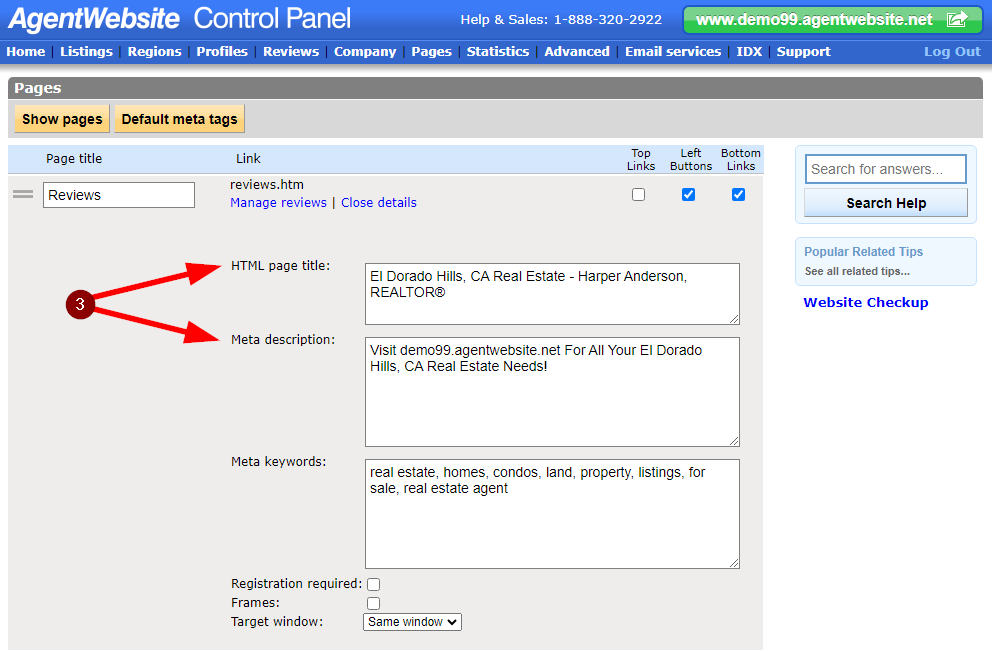Updated more than a week ago
Below are guidelines that you can use to optimize your website page content both for humans, and for search engines.
Although we optimize these elements when your website is created, you can make adjustments any time.
First and foremost, make sure your content is useful to humans. Spamming your website with key words will have a negative effect.
After you make changes to your website, it will take days or weeks for search engines to reflect the changes.


Meta descriptions are often displayed in the text of search engine results. They may also be used when pages are shared via text message or on social platforms like Facebook.

To edit meta descriptions, go to Control Panel > Pages > [page] > Edit details > Meta description.
HTML page titles are often displayed in the title of search engine results. They may also be used when pages are shared via text message or on social platforms like Facebook.

To edit HTML page titles, go to Control Panel > Pages > [page] > Edit details > HTML page title.
HTML headings are often displayed in the text of search engine results:

To edit built-in HTML headings, go to Control Panel > Advanced > Headings
To edit HTML headings in content that can be edited with the WYSIWYG editor, simply edit the heading text. An example of this are the headings found in Control Panel > Pages > For Buyers > Edit page.
On-page content is often displayed in the text of search engine results:

"On-page content" means the content found throughout your website.
One example of on-page content is the text found in Control Panel > Profiles > [profile] > Edit profile. Other examples of on-page content are the text found in Listings, Regions, Company, Reviews, and Pages.
See also: Generate Real Estate Leads
20+ YEARS OF QUALITY SERVICE WITH A SMILE
@ 2025 AgentWebsite Terms of Use | Privacy